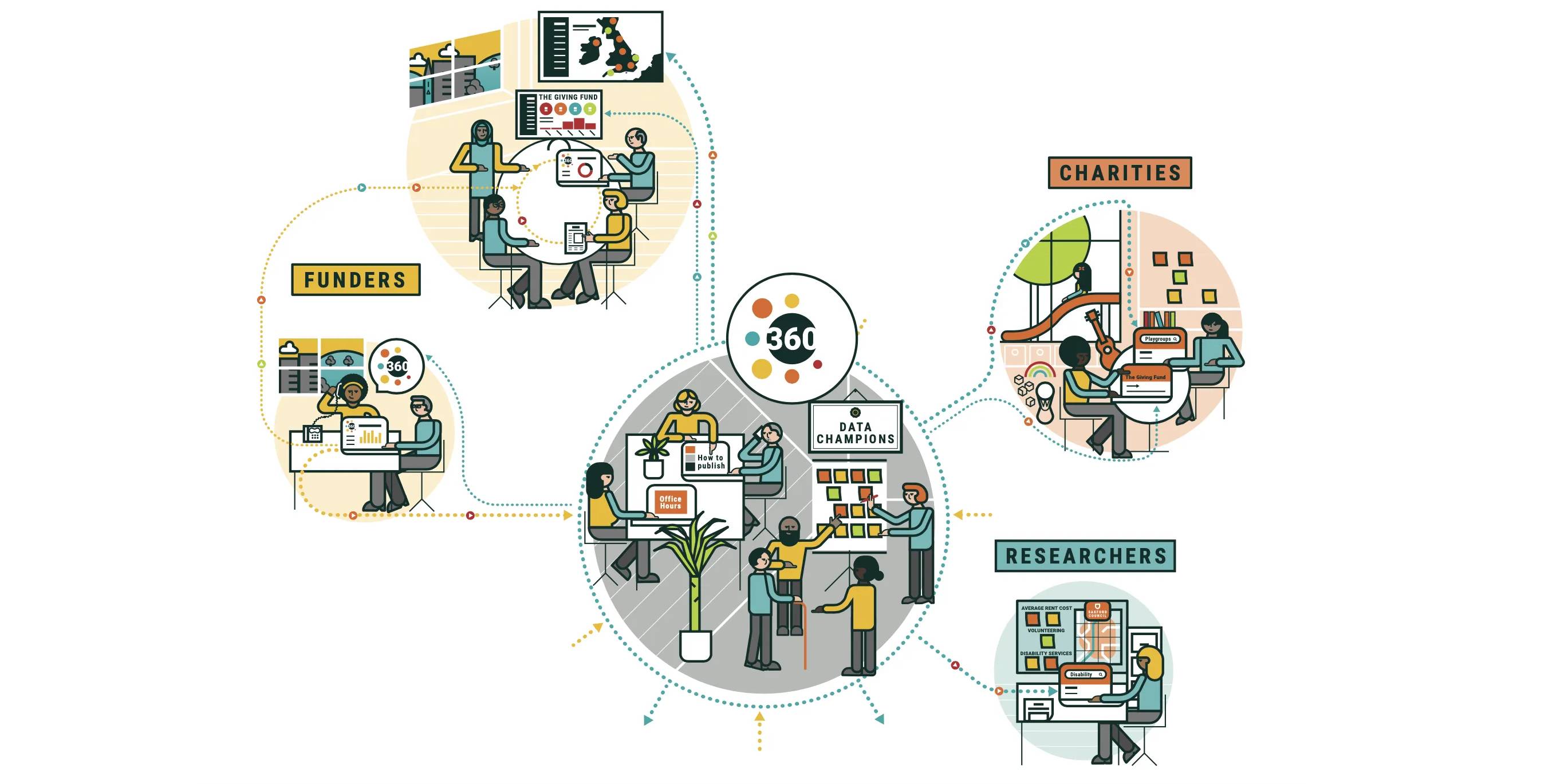Open Data Services helps people publish and use open data. We’ve been working with 360Giving since 2015 to help funders publish open and comparable information about their grants. In turn, we can use this data to make grantmaking more informed, effective and strategic.
Together, we’ve supported 210 organisations publishing 360Giving data on more than 600,000 grants worth over £110bn. In this blog, we share the benefits of publishing machine-readable data, the tools we’ve developed with 360Giving to support publishers to do so, and some common pitfalls organisations encounter when publishing.
Why open data standards matter
The 360Giving Data Standard provides an agreed format for sharing open data on who, where and what grantmakers fund by publishing an open data file on their website. Standards give meaning to data, by ensuring a common understanding of the information it contains. Open standards build on that, by making data freely available for anyone to use for a range of different purposes.
Remember machines will read your data, not humans…
Using an open data standard is good — but creating machine-readable data is even better.
We’ve deliberately made it easy for publishers to create machine-readable data by adopting a ‘spreadsheet first’ approach. This means grantmakers don’t need to use difficult tools or interact with centralised systems to contribute to 360Giving. Instead, they simply update a spreadsheet, save it, and upload it to a page on their website using whatever process works best for them — whether they are a three person organisation or a large NGO.
If you publish machine-readable data using this method, your data can be used in tools that help people find, use and explore that data in interesting ways. For example, we’ve built a pipeline that automatically fetches data from grantmakers’ websites, checks it against the standard, and loads it into the Datastore on a daily basis — something that would be difficult and time-consuming without machine-readable files.
The Datastore gives developers and analysts direct access to data, and is used by a number of tools to help people find and use 360Giving data quickly, easily and from different perspectives. These include GrantNav, the search-engine for grants data, 360Giving Insights, which combines and visualises grantmaking data with charity data, and the Covid-19 Grants Tracker, which collates and displays grants awarded in response to the pandemic.
…but machines need to find your data in a stable place
Machines can be more exacting than humans, and there are some common pitfalls to be aware of when you’re publishing. Our data pipeline requires files to be kept in a stable place with a consistent name — if a file goes missing, the pipeline can’t simply google it to find out where it is.
When grantmakers update their data, the spreadsheet or JSON file should be uploaded to the same place with the same file name. If the file is moved or the name is changed, the services that try to access it won’t know the right place to look. This is when humans have to get back involved, to update file links and let us know about any location or name changes.
One common issue we’ve found occurs when organisations refresh their websites. In the process, it’s easy to forget about open data files. To ensure your data remains accessible, it’s helpful to designate someone to be responsible for it, who will ensure the data is included in any content audits and has a place on the new website.
It’s also important to keep an eye on whether your website blocks access to automatic processes used to fetch data. Some website hosting companies block all automatic processes, and others mistake our helpful data fetching bots for malicious spammers — stopping that data from being collected, and people using it.
Finally, we’re here to help
Publishing useful, usable data doesn’t need to be daunting. We’ve intentionally made it easy to publish data to the 360Giving Standard, but we understand that you might still need a little more support to guide you through the process. That’s why 360Giving has put together Guidance for Publishers, and you can contact the support team who are happy to help you through every step. We look forward to exploring your data.
